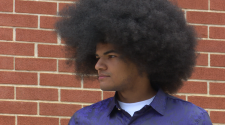
Caiaimage/Paul Bradbury/Getty
Thank you for coming and welcome to the College Board’s Preliminary SAT and National Merit Scholarship Qualifying Test, the internet age edition. You must bring two No. 2 pencils, a photo ID, and an approved calculator. You must not smuggle in a protractor, or scarf down a sandwich, or post memes on Twitter that reveal test content. No, really: The penalty for such illicit memes could be the cancellation of your test score. And now, an inspiring message from Youth Icon, former boy band member, and British person Harry Styles:
All over the US, high school juniors and sophomores are now taking the PSAT, which has been the norm for the past half-century. The contemporary trouble for test administrator the College Board is that the test’s ubiquity, the age of participants, and the high emotional stakes these days make the details of the exam guaranteed meme fodder—and, well, standardized tests are standardized. Posting memes about them could lead to teens getting hints about their contents. So the organization has taken to Twitter to try to salvage some semblance of their normal testing conditions. Teens are, as always, unimpressed.
Nothing unites high schoolers than the memes that are borne out of the PSAT and honestly, it’s beautiful
— Anna (@bananadaccache) October 8, 2019
The College Board has been on meme watch for years. The earliest signs of PSAT meme movements likely date back to 2014, when users on subreddit r/teenagers decided to “illegally discuss the PSAT,” and others took to Twitter and Tumblr to post their own reactions to test questions. The College Board has made it clear that it disapproves, sometimes posting stern messages warning test takers about the potential consequences and making frequent requests for students to delete tweets pertaining to the test.
Should you share#PSAT/NMSQT content
online?
_____|_____
| |
Yes No
| |
Try Good
Again Job— The College Board (@CollegeBoard) October 16, 2019
The College Board’s efforts are a bit of bizarro, “how do you do, fellow kids?” corporate memeing—not much better than the cringey clunkers people have come to expect from fast food companies’ Twitter accounts. The posts are no deterrent for test takers, who have flooded Twitter with #psatmemes this past week. Truthfully, none of the students’ memes seems like it’s an especially helpful covert cheat sheet. If this year’s PSAT were a movie, I’d remain unspoiled—all I know is that mathematical constants and ambiverts came up, that somebody named Ruth read Nao’s diary, and that babies will get dirty if their mothers leave the house to vote. (That last one seems very weird out of context, College Board. What are you making the teens read?)
As someone not employed by the College Board, it’s hard to begrudge the teens their fun as long as they’re not explicitly handing out answers. Nationwide teenage levity at the expense of a dull standardized test (that potentially reinforces economic disparity) is quite a bit better than other teenage trends, like slurping Tide Pods or bullying their peers. It’s almost a little hopeful—an example of the internet bringing people together for casual fun in a time of stress, rather than creating new areas for public cruelty.
Besides, the youngsters show no signs of stopping. The savviest teens already know how to ensure their scores remain uncanceled: Just hide the memes from prying adult eyes by annually blocking @CollegeBoard on Twitter.
This story originally appeared on wired.com.


















